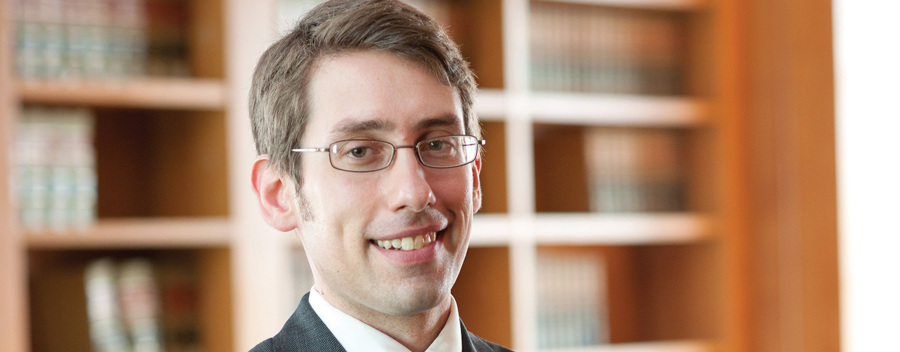
If Professor Christopher Beauchamp, who received tenure this spring, had the chance to whisper in Lin Manuel Miranda’s ear, chances are the Tony-award winning playwright’s follow up to “Hamilton” would be called “Bell.” It would be an epic rhyme and verse musical chronicling the story of how Alexander Graham Bell became the inventor of the telephone, which Beauchamp recounted in his acclaimed book, Invented by Law: Alexander Graham Bell and the Patent That Changed America (Harvard University Press, 2014). On its face, the book is about the history of patent law, along with the rivalries of inventors and drama of love and politics, but the real hook for Beauchamp is the backstory of the team of lawyers who made Bell the inventor of the telephone.
“Professor Beauchamp wrapped the Bell patent case in a compelling story about the centrality of innovation, inventions, and legal infrastructure governing commercial creative rights to the growth and success of our country from its earliest days,” said Dean Nick Allard.
The rich and surprising history of patent law and how it might be used as a guidepost for current legal decision-making and legislation has been at the heart of Beauchamp’s scholarship and teaching throughout his dynamic career. “The thrust of my work has been to say this: The past is more fun than you think and it can tell us more about where we are now,” he said. “There is a world of patent litigation that I am trying to bring back into the light.”
Beauchamp has a Ph.D. in history from Cambridge University and fell in love with patent law when he saw how the field was transforming and felt exploring its history would be invaluable. “There are many historical parallels and debates about this area of law,” he said.
He is currently working on an article about the constitutionality of a procedure for cancelling patents, related to a case before the U.S. Supreme Court, Oil Sates Energy v. Greene Energy Group.